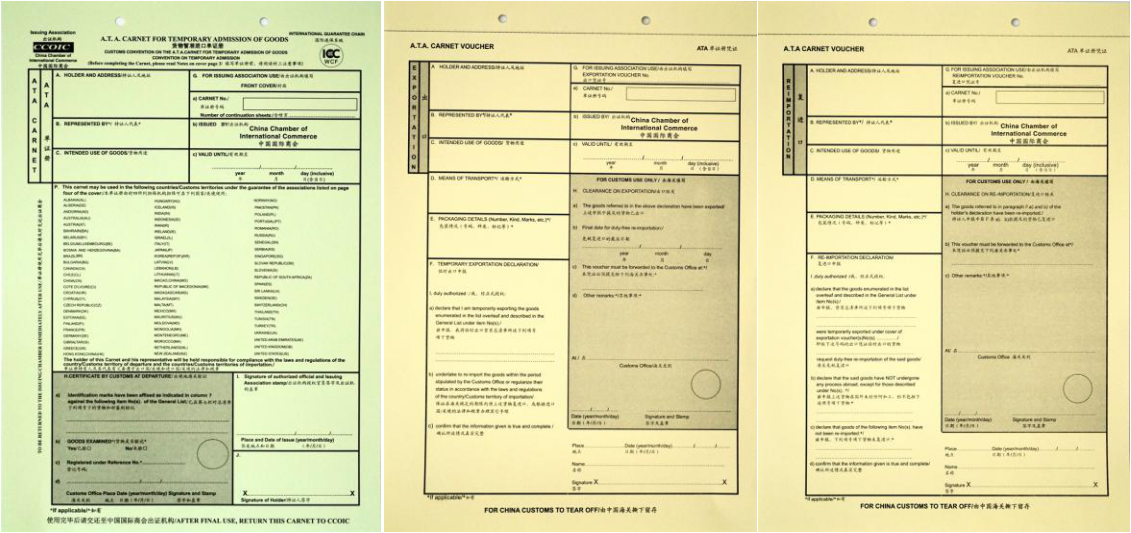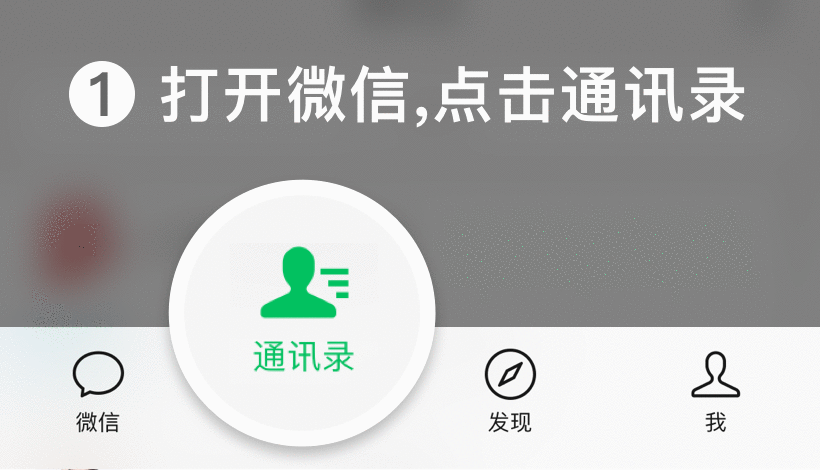1. What is an ATA document?
ATA Carnet is an international customs clearance document specially created by the World Customs Organization for temporary entry and exit of goods. ATA is a condensed form of French Admission Temporaire and English Temporary Admission, which means that import is temporarily permitted. ATA Carnet is also called "Cargo Clearance Passport"
The ATA Carnet System aims to unify and simplify the customs procedures for temporary import and export of goods, provide maximum customs clearance convenience for the global movement of temporarily in and out goods, and promote the exchange and development of international economy and trade, science and technology, culture, and sports. .
The movement of goods on a global scale provides maximum convenience for customs clearance, and promotes the exchange and development of international economy and trade, science and technology, culture, and sports.

ATA document sample
2. Scope of application of ATA document declaration
The goods applicable to the ATA Carnet System are "temporary imported goods", not goods subject to trade. Trade goods, whether they are import and export, processing with supplied materials, three to one replenishment, or barter trade, are not applicable to the ATA Carnet. Broadly speaking, the ATA Carnet System can be applied to any goods, including goods stipulated in the Istanbul Convention Annex (except Annex A and C) and goods in the additional Annex in the future. In a narrow sense, for a country or region that implements the ATA Carnet System, the scope of application of the ATA Carnet System in that country or region refers to the ATA Carnet items accepted by the country or region as the importer. The scope of the next cargo.
According to the purpose of import, the goods applicable to the ATA Carnet are classified into the following categories:
1. Items displayed or used in various international fairs, trade fairs, exhibitions, international conferences and similar activities;
2. Commercial samples displayed or demonstrated to customers for the purpose of seeking overseas supply orders;
3. Professional equipment used by various professionals, such as publishing, audio-visual broadcasting, and photographing equipment required for reporting, recording programs, and filming overseas; various measuring instruments required for installing and debugging machines abroad; required by medical personnel Medical equipment; costumes, props, etc. required by actors, orchestras and troupes;
4. Packaging materials that have been used or are ready to be used for wrapping inside and outside the goods, or for wrapping, binding and other purposes;
5. Items used by seafarers in performing maritime tasks, including items for cultural, sports, recuperation, religious or sports activities;
6. Instruments, equipment and accessories for scientific research and education;
7. Various settings, instruments, equipment and spare parts for teaching or vocational training;
8. All kinds of private vehicles;
9. Private aircraft and yachts;
10. Various promotional materials, small gifts, audio-visual products, etc. to promote tourism;
11. Freight container;
12. All kinds of commercial vehicles.
The goods that are not applicable to the ATA Carnet generally include:
Perishable or consumable items;
Goods imported for sale;
Goods intended to be presented;
Goods imported for processing or maintenance purposes;
Equipment for industrial manufacturing, cargo packaging (except hand tools), resource development, construction and maintenance of buildings, excavation and similar projects.
Penghai ATA Service
ATA document agency, ATA document declaration













